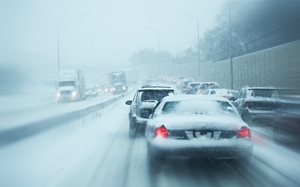If your travel nursing career has taken you to a winter wonderland and you can't wait to hit the slopes or just play in the snow, it's important to take precautions while enjoying these activities. A number of winter sports require the use of muscles that are often left out of general exercise programs. Additionally, since you engage in these excursions only a few times each year, you may be eager to push yourself too hard. Before you hit the snow, consider these words of wisdom:
Attire
While spending the afternoon outdoors in cold temperatures, it's important that you have the proper attire on. HealthDay recommends wearing several layers that are wind- and water- resistant as well as loose and light. This way, you can toss a layer or two in your locker rental before heading back out on the snowboard after lunch. You'll also want to bring along the proper accessories, such as a helmet and goggles, depending on which type of adventure you're planning
Additionally, footwear isn't only important on travel nursing jobs! You'll want to protect your toes if you're out hiking or snowshoeing. The best options will give you good support, both in the sole and ankle, as well as keep your feet dry and warm. Trust us, you don't want to to spend the afternoon trudging back to the lodge with a water-soaked sock! Not only can this be dangerous – causing anything from a fungus infection to frost bite – but it is rather uncomfortable too.
Fitness
In order to reduce your risk of an injury while enjoying Mother Nature this winter, be sure to warm up your muscles and stretch them out! This is no different than any preparation you would do for a session at the gym. Remember, tight muscles are apt to lead to injury. Be sure to hydrate properly both before and after your winter excursion as well. Keep in mind that if you have a case of the sniffles or are still recovering from a bout of the flu virus, it may be best to reschedule. While this may cause some hiccups in your travel nursing schedule, it's much preferred to worsening your condition.
Travel
If you wake up the morning of your scheduled trip and find a winter storm, be sure to take proper precautions. Commuting in severe snow can be dangerous, and you want to make it to your final destination in one piece! So, check the local weather stations before you jump in the car and make sure that your vehicle is stocked with all of the necessities: water, food, an emergency kit, blankets, flashlight, window-washer fluid and a snow scraper. Also, double check to make sure you've brought your cell phone (fully charged) along for the ride. The Centers for Disease Control and Prevention recommend following at least 100 yard behind the car in front of you while on the road if snow is present or ice is possible.
So, now that you're properly prepared, use your days off during your travel nurse assignment to take advantage of the mounts of snow that have been piling up!

